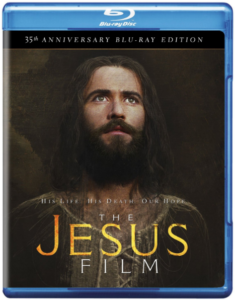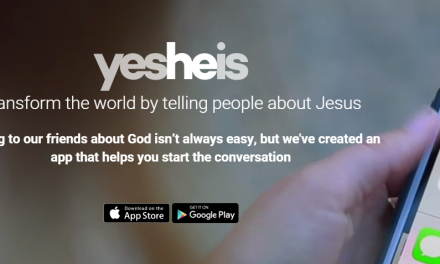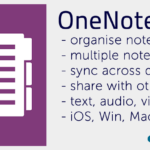 Clyde Tabor leads the Visual Story Network, a coalition of 270 organisations and 2300 media leaders in 85 nations working to expand a worldwide movement of media so everyone has the opportunity to encounter Jesus and His kingdom. Through visual communication, story telling and mobile ministry the Visual Story Network equips and establishes faith communities by supporting the use of visual media for ministry.
Clyde Tabor leads the Visual Story Network, a coalition of 270 organisations and 2300 media leaders in 85 nations working to expand a worldwide movement of media so everyone has the opportunity to encounter Jesus and His kingdom. Through visual communication, story telling and mobile ministry the Visual Story Network equips and establishes faith communities by supporting the use of visual media for ministry.
Prior to this, he oversaw new media development for The JESUS Film Project (Magdalena: Released From Shame, Damah Film Festival, JESUS: Fact or Fiction?) and coordinated the campus work of Cru (Campus Crusade for Christ) throughout North Africa, the Middle East and Central Asia.
I know Clyde as a man of God equipping and encouraging others to engage in serving the Lord. He is a mobiliser of people and helps people connect, share and work together in and for the Kingdom of God.
First up, tell us what things you enjoy doing when you’re not working with Visual Story Network?
I enjoy hanging out with my wife and 14-year-old daughter (our older two are launched), fitness swimming and visiting our local beaches in Southern California. My son tried to get me to go spearfishing last year, but I almost drowned so I think I’ll stick to snorkeling.
What is Visual Story all about, describe the ministry?
We are a loose-knit tribe of 2500 people in 85 countries who love Jesus and have a passion for communicating visually. Our goal is to catalyse the global church to innovate through media, story and mobile technology. We connect people with resources and relationships that can help them be more effective than those three areas. We love to foster collaboration. We have seen 150 different collaborative projects in our first eight years.
What inspired the development and creation of the Visual Story ministry?
 In 2005, Rob Hoskins (President of OneHope) and Jim Green (then Director of the Jesus Film Project) were talking about the need to see the church more effectively communicate visually. At the time I was the Director of New Media at the Jesus Film Project. Jim asked me and my team to host some partnership gatherings to explore this idea. To my great surprise those conversations expanded quickly and I felt God nudging me to give full-time leadership to it. After 23 years on staff with Cru, we started a new non-profit to foster a movement of visual story for the sake of the kingdom.
In 2005, Rob Hoskins (President of OneHope) and Jim Green (then Director of the Jesus Film Project) were talking about the need to see the church more effectively communicate visually. At the time I was the Director of New Media at the Jesus Film Project. Jim asked me and my team to host some partnership gatherings to explore this idea. To my great surprise those conversations expanded quickly and I felt God nudging me to give full-time leadership to it. After 23 years on staff with Cru, we started a new non-profit to foster a movement of visual story for the sake of the kingdom.
How do digital technologies support or enhance your ministry?
Because 90% of what I do is virtual, I am highly dependent on tools and software that enable me to connect with people around the world. I am lost without my Mac book Pro, my iPhone 6+, Zoom video conferencing, texting, email, Google Docs, Trello, Haiku (the LMS behind Mission Media U)…and of course an Internet connection.
I am big proponent of the power of media to sow broadly and identify the 2 1/2% of any population that is open to religious change at a given moment in time. That being said, it must lead to face-to-face and life-on-life ministry if long-term transformation is to take place.
Are there any key/specific scriptures which are commonly shared with your ministry staff?
I am the Matthew 28:16-20 kind of guy. That verse has served as my anchor and Northstar for my 31 years of ministry. At the end of the day, we have to help people become more like Jesus.
If you ever get an email from me you will see that I have a hyperlinked signature that points to the post that I write about the theme that God gives me for that calendar year. This year it is Listen and Love from Deuteronomy 6:4-5.
One of the other things I find myself saying a lot is that anyone can change the world if they do these three things (figure out your calling, do it well, do it long…decades long)
If you travel to different countries, what differences stand out to you regarding technology uses you’ve observed?
More than anything, I’m struck by how common media is. We live in a screen-driven world. And of course, now the  big screen is the small screen, the mobile device. Mobile is the most rapidly adopted technology in human history. That’s one of the reasons that we helped launch the Mobile Ministry Forum.
big screen is the small screen, the mobile device. Mobile is the most rapidly adopted technology in human history. That’s one of the reasons that we helped launch the Mobile Ministry Forum.
What ways do you use technologies yourself for your own spiritual growth or for introducing others to Christ?
The thing that has probably changed my spiritual life the most in the last five years is listening to Scripture devotionally. I think listening to God’s Word is much more of a right-brained activity versus reading as a left-brain activity. In fact, I think the apostle Paul something to say about this somewhere…”faith comes by reading”… or something like that. For this reason, I am a big fan of the Bible.is app from Faith Comes By Hearing (they have more audio versions and I happen to prefer the narration voices over the YouVersion app).
Because I was with the Jesus Film and produced these two projects, I still have a healthy number of copies of the movie “Magdalena” and the DVD “Jesus:Fact or Fiction?” I always have them with me and give them away when I am in a sharing situation. So I haven’t quite made the jump to using my phone for sharing Christ yet. I guess I should work on that one. Don’t tell anyone in the Mobile Ministry Forum.
If you had an unlimited budget, what technology would you equip your ministry, yourself and your staff with this week?
 We are actually trying to migrate to the Sales Force platform. One of our challenges is managing the many contacts we have around the world. They offer 10 free licenses to any non-profit, but it still requires a third-party professional to help with the migration and training process. We actually received some foundation funding for that this year.
We are actually trying to migrate to the Sales Force platform. One of our challenges is managing the many contacts we have around the world. They offer 10 free licenses to any non-profit, but it still requires a third-party professional to help with the migration and training process. We actually received some foundation funding for that this year.
Just about everyone I know in the Western world has a smart phone (except for Steve Baughman of EMDC) so I’m a big fan of that.
How do you collaborate with others in your ministry teams using technology?
When people get involved with the Visual Story Network, it usually follows a process like this. They create a profile on our site (our site is on the social networking platform Ning) or someone will refer them to me. We will then usually have a 30-minute introductory call by phone or by Skype. We keep in touch with people through our Constant Contact system.
When people participate in one of our events or trainings their connection with us grows. A number of people get involved in one of the collaborative projects we are involved with. We used Google Docs exclusively until the last year and now we use a combination of Google Docs and Trello. For videoconferencing we used WebEx by Cisco for five years, but it just seemed like it was not being maintained very well. We moved over to Zoom and I have found it to be substantially more robust and cost-effective.
Are you closely connected with any other ministries because of technology?
Virtually all of the people within our community have connected with us because they are visual communicators so they have some kind of interest in digital media.
What hardware and software do you find yourself using most frequently?
I am a Mac/iOS guy. I have found that MS Office is better than the Apple products because of market saturation. It’s just not the same if I try to share a Pages doc with you. In addition to the products I’ve already mentioned, I have found Dragon Dictation to the worth every penny. Voice-to-text technology has changed my life in the last few years. I would recommend everyone use Hemingway Editor. Anyone who does any writing should consider this inexpensive software application.
What technology developments over the last 5 years have impacted your ministry activities most significantly?
Two things: the sheer number of mobile phone subscriptions and affordable DSLR’s for filming.
What technology skills are you looking for when recruiting new ministry staff?
For our team, we need people who are very comfortable in a virtual world. I’m no longer involved in producing visual media, so our team members are not necessarily visual storytellers, although these are the people at the heart of our community.
Where do you go for new technology information as you plan ahead for future ministry activities?
Wired magazine is always cutting edge. The Mobile Ministry Form has been very influential in my own life. I’m a big fan of Brigada for keeping in touch with resources in mission community.
What trends in technology are inspiring developments in your ministry?
In addition to the mobile revolution, I have become deeply persuaded of the necessity for God’s people to be better storytellers. We have several initiatives focused on this area. Part of the reason we see a gap here is because many visual communicators start with hardware because it’s so accessible, but never delve into the art of crafting story. It’s like having great hardware without an operating system.
How do you use available technologies to communicate what your ministry is doing?
We primarily use email through Constant Contact. We post videos on YouTube and Vimeo.
The Visual Story Network site is on the Ning platform. Our Mobile Ministry Forum, Middle East Women’s Leadership Network and Mission Media U are on the WordPress platform.
Have you any stories you can share where you’ve clearly seen God doing things through digital technologies that wouldn’t have been possible without it?
In our Foundations in Media Strategy course, we did a case study from North Africa. A team that is focused on Disciple Making Movements worked in traditional relational evangelism with limited success. When they began to think through a media strategy, they were able to cast their net more broadly and identify people who were open to the gospel. Within two years they had 14 baptized believers in several small groups. There was a significant difference when they thoughtfully developed a media strategy
Where do you go for technical support in using digital technologies?
When I get stuck, I have a few friends who help me out.
Within the Christian mission community are there other ministries you regularly connect with for support or collaboration?
Yes, we work with 270 different ministries around the world.
Is there a software or hardware reseller you’d like to give a subtle promotion for?
Here is our list of trusted resource partners.
What influences your technology purchasing decisions the most?
I usually look for cost effectiveness versus value. I don’t think I will ever buy a new MacBook Pro again because I’ve had success finding great deals on eBay.
As you observe people around you using digital technologies how do you see them using technology missionally?
The mobile phone has been absolute revolution. Here is a list of stories that we’ve archived.
From your role in a technology ministry what technologies do you see in the next five years having impact for the Gospel?
Mobile will continue to be the dominant game changer. Virtual Reality is the next universe to be discovered.
What app are you using more than any other?
Google Docs, Bible.is, Google Maps
How can people best connect with your ministry?
We have a number of websites but for one-stop shopping, go to www.visualstory.org/connect.















